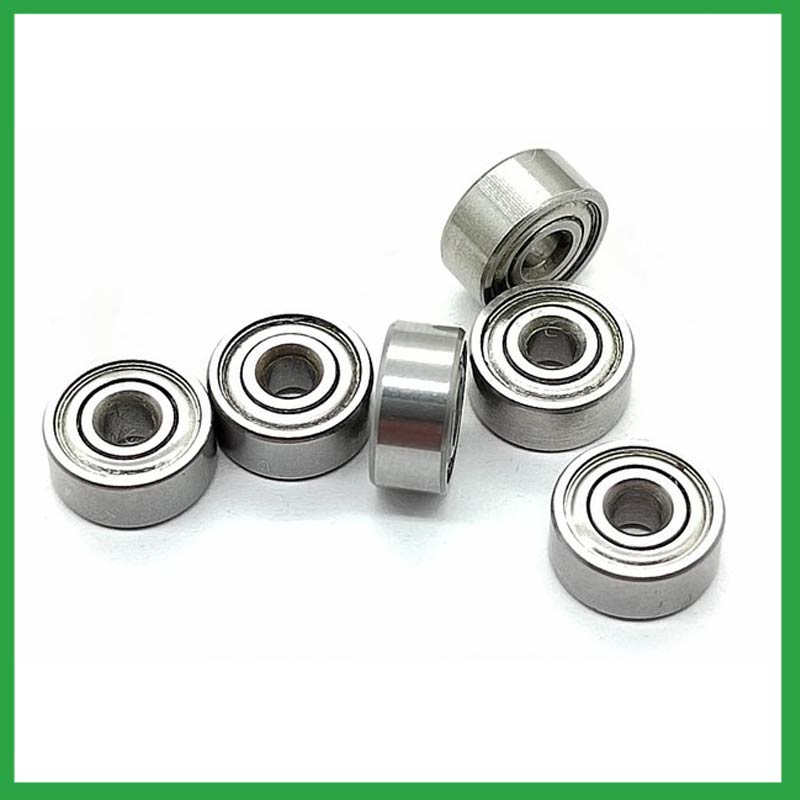PRODUCTS
CONTACT US
Ningbo Nide International Co., Ltd.
一一
· Contact person:Jack Zeng
· Mob/Whatspp/WeChat:0086-13738869026
· Email:emarketing@nide-group.com;marketing4@nide-group.com
· Add:No. 169, Wohushan Road, Daqi Subdistrict, Beilun District, Ningbo, China
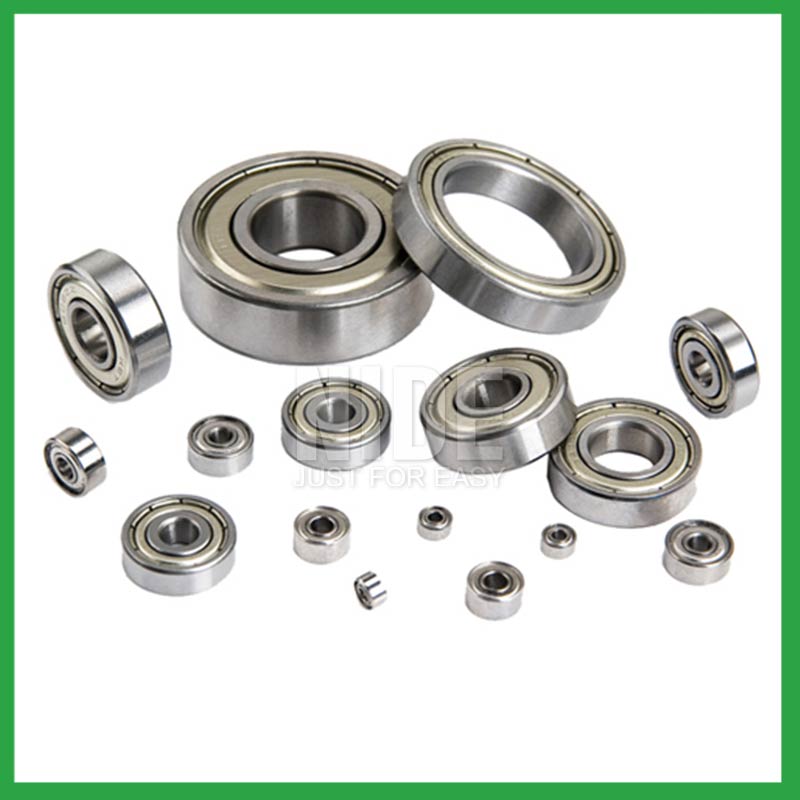
Nide team could manufacture ball bearing as per customer’s drawing and samples.
If customer only has samples, we could also design drawing fo r our customer.
We also provide customized service.
Our ball bearing is widely applied the different industrials.
Established in 2010, Haishu Nide International is a modern enterprise specializing in the production of high-density bearings, with a factory area of over 9000 square meters. We have an excellent staff team, excellent production lines, and complete testing methods. Our main products are spherical roller bearings, cylindrical roller bearings, motor cover and lamination,commutator,shaft,ball bearing,insulation paper,fan, etc.
At present, our products have been sold to Europe,Africa,America and other regions, as well as more than 50 countries and regions such as Mongolia,Qatar,French Guiana,United Kingdom. Strict quality control system, plus strong technical team allow us to offer the reliable machines to our customers. The philosophy of ” Service, Profession, Prompt, Innovation” help us to win the customer favor.
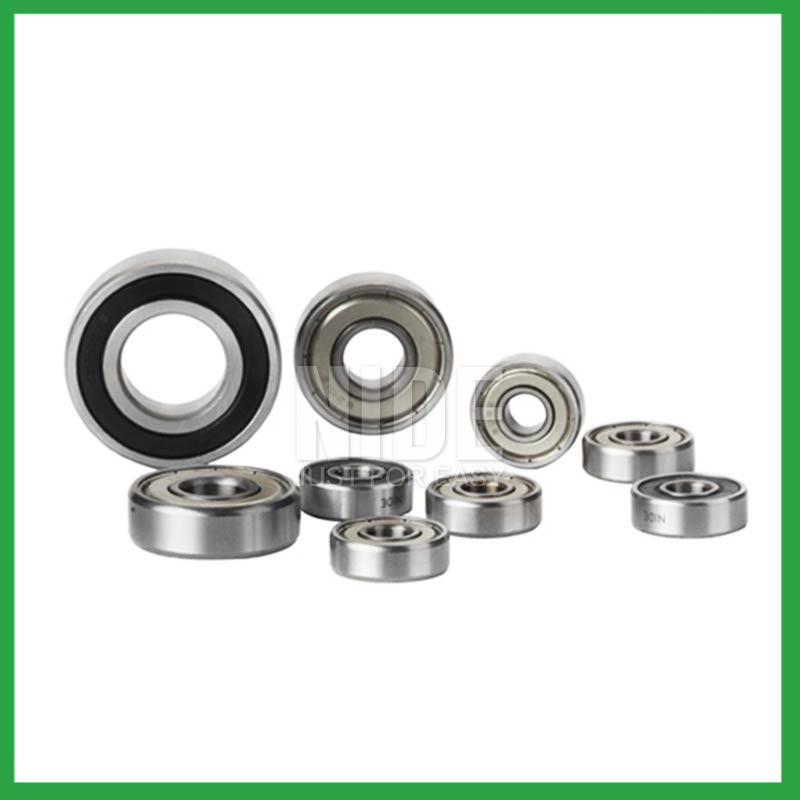
| Parameter | Information |
| Product Name | philly ball bearing |
| Place of Origin | Ningbo,China |
| Brand Name | Nide |
| Material | chrome steel, etc. |
| Type | Ball |
| Warranty | 3months-1year |
| Port | Ningbo/Shanghai |
| Application | automotive engines, etc. |
| Size(mm) | customize |
| Color | white+customized |
| Precision Rating | as per customer's requirement |
| Certification | ISO 9001 Certification,CE-insulation paper inserting machine,CE-stator coil lacing machine,etc |
| Feature | Strong carrying capacity,High precision...etc |
| Packaging Details | Suitable for sea transportation |
| Service | one-stop service |
| Model Number | ball bearing |
| Supply Ability | 100000-500000 Piece/Pieces per Month |
| Lead time (days) | 15-20 (To be negotiated) |
Please note: The above table data is for reference only. For specific information, please contact us.
The precision range of philly ball bearing is from ABEC7 to ABEC9, with a particle size of 0.3 μ m. Among them, ABEC9's ball bearings have the best precision range and are widely used in the electronics industry, precision measurement industry, and so on.
Before use, the model, size, and design of the ball bearing should be confirmed to ensure suitable application;
During installation, the installation load of the ball bearing should be minimized as much as possible to avoid unnecessary damage;
The bearing shaft and the bearing frame should be stable at the same time to avoid excessive tension.
Ball bearings have many advantages, making them highly competitive in the market.
Firstly, they are very durable and have good wear performance, making their service life longer than many other types of bearings.
Secondly, they are easy to install and can provide low friction performance in various applications.
Thirdly, they require a relatively low level of maintenance, making them cost-effective.
In addition, compared to many other types of bearings, their purchase cost is relatively low, making them an economical choice.
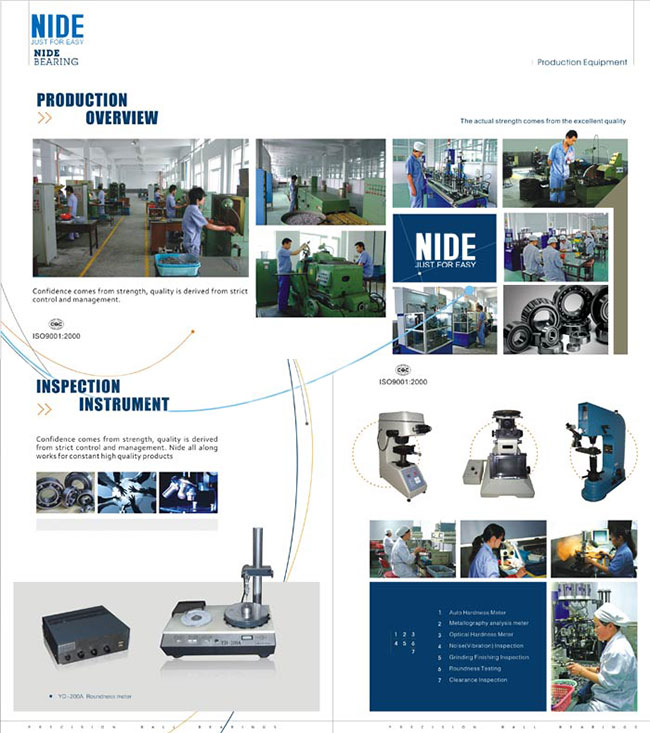
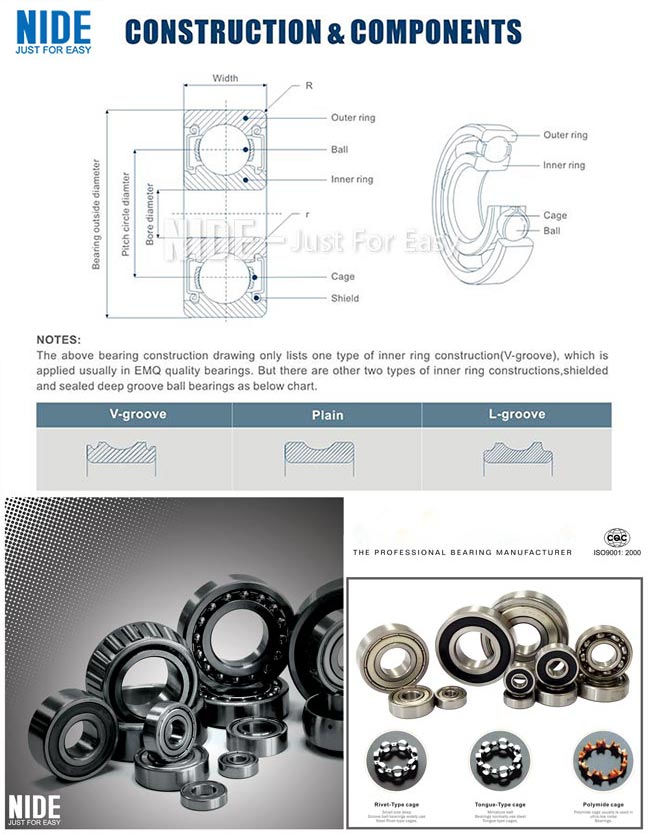
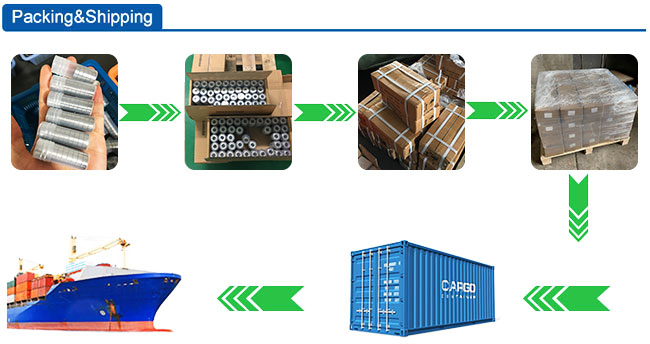
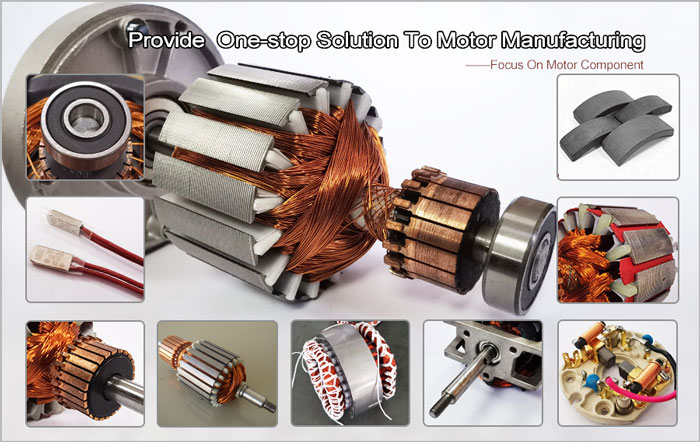
philly ball bearing---FAQs Guide
2.How do different philly ball bearing designs, such as deep groove, angular contact, or thrust bearings, cater to specific applications?
3.About philly ball bearing,Will you check the products before shipment?
4.Are there specific philly ball bearing designed for applications in the aerospace and aviation industries, and what standards do they adhere to?
5.Can philly ball bearing operate in high-speed applications, and what design features make them suitable for such conditions?
6.What are the common materials used in philly ball bearing manufacturing?
7.About philly ball bearing,Can I add my own logo?
8.What is a ball bearing?
9.What are the considerations for selecting sealed or shielded philly ball bearing to protect against contamination and retain lubrication?
10.Can philly ball bearing be customized with special coatings or treatments to meet specific industry standards or regulatory requirements?
11.Can philly ball bearing be used in both vertical and horizontal orientations?
12.How do philly ball bearing handle radial loads, axial loads, and combined loads, and what are their load-carrying capacities?
1.As a philly ball bearing manufacturer,can you supply samples?
Sure, samples can be provided free of charge, and the buyer pay the postage of the sample.
2.How do different philly ball bearing designs, such as deep groove, angular contact, or thrust bearings, cater to specific applications?
Deep groove philly ball bearing: Deep groove ball bearings are the most common type. They can handle both radial and axial loads. Angular contact ball bearings: Angular contact ball bearings have higher than average internal axial clearance. They can handle axial loads in one direction and moderate radial loads.
3.About philly ball bearing,Will you check the products before shipment?
Yes, We have a professional QC team. Products will be strictly inspection before shipment.
4.Are there specific philly ball bearing designed for applications in the aerospace and aviation industries, and what standards do they adhere to?
Airframe control philly ball bearing are specialized bearings tailored for aircraft structures, particularly control systems and surfaces. Designed for low-speed oscillatory applications, they offer precision and support, effectively managing misalignments and flight-induced stresses.
Airframe Control bearings are lightweight, corrosion-resistant, grease-lubricated, and are sealed on most occasions. They come in precision grades for running accuracy.
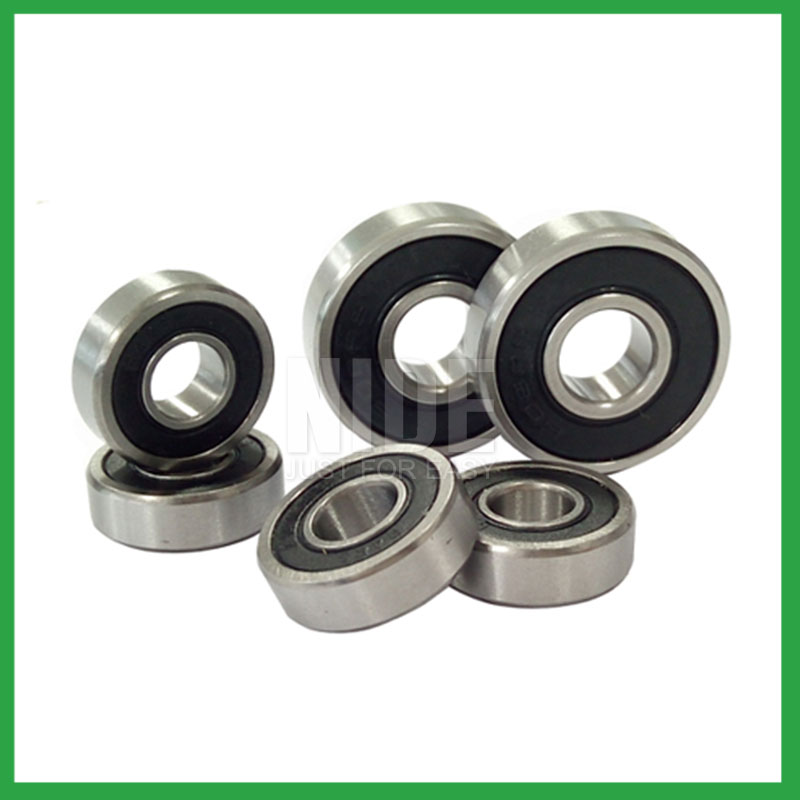
5.Can philly ball bearing operate in high-speed applications, and what design features make them suitable for such conditions?
They have very low rolling friction and are optimized for low noise and low vibration. This makes them ideal for high-speed applications. philly ball bearing are comparatively easy to install and require minimal maintenance.
6.What are the common materials used in philly ball bearing manufacturing?
Most philly ball bearing are made of a type of steel known as high carbon chromium steel, often called chrome steel. This is used for reasons of cost and durability. Bearings are also made from other materials such as stainless steel, ceramics and plastic.
7.About philly ball bearing,Can I add my own logo?
Yes, you can add your logo on bearings and packing box. We supply OEM SERVICE including bearing's size, logo, packing, etc.
8.What is a ball bearing?
A ball bearing is a type of rolling-element bearing that uses balls to maintain the separation between the bearing races.
The purpose of a ball bearing is to reduce rotational friction and support radial and axial loads. It achieves this by using at least two races to contain the balls and transmit the loads through the balls. In most applications, one race is stationary and the other is attached to the rotating assembly (e.g., a hub or shaft). As one of the bearing races rotates it causes the balls to rotate as well. Because the balls are rolling they have a much lower coefficient of friction than if two flat surfaces were sliding against each other.
Ball bearings tend to have lower load capacity for their size than other kinds of rolling-element bearings due to the smaller contact area between the balls and races. However, they can tolerate some misalignment of the inner and outer races.
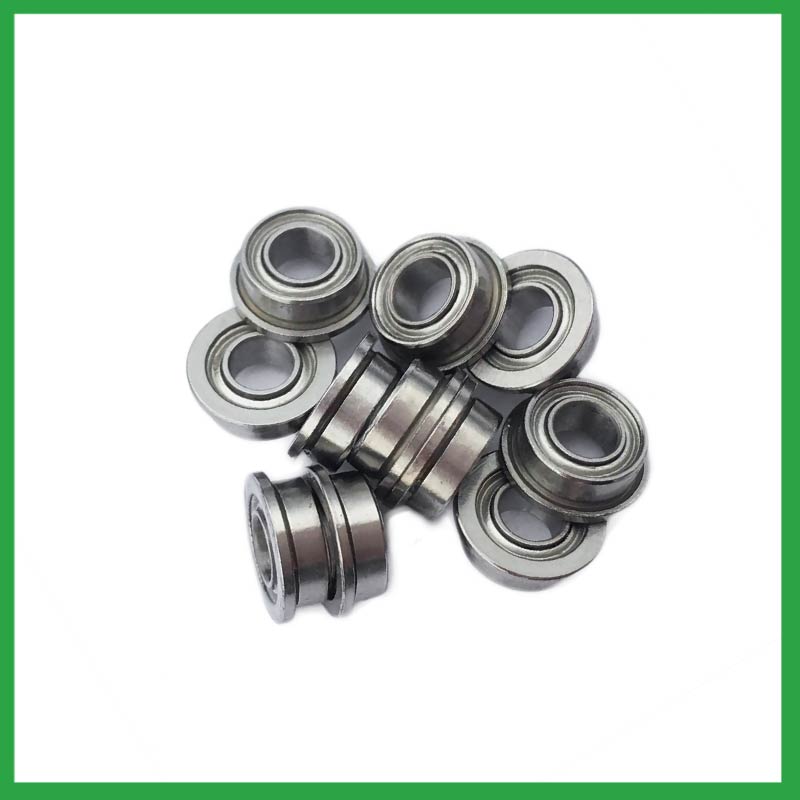
9.What are the considerations for selecting sealed or shielded philly ball bearing to protect against contamination and retain lubrication?
First, the environment in which your philly ball bearing operate in can help you identify potential contaminants, allowing you to select your shields or seals accordingly. For example, shielded bearings have a gap that can allow finer contaminants or water from washdown applications to enter the bearing and get into the raceways.The challenge for sealing bearings is to seal the bearing by protecting the bearing from contaminants and running efficiencies.
10.Can philly ball bearing be customized with special coatings or treatments to meet specific industry standards or regulatory requirements?
Yes, philly ball bearing can be customized with special coatings or treatments to meet specific industry standards or regulatory requirements.
1. Corrosion-resistant coatings: These coatings are used to protect the bearings from corrosion caused by exposure to moisture, chemicals, and other corrosive substances.
2. High-temperature coatings: These coatings are used to improve the thermal stability and performance of bearings in high-temperature environments.
3. Food-grade coatings: These coatings are specially designed for applications in the food and beverage industry, where bearings come into contact with food, beverage, or pharmaceutical products.
4. Anti-static and non-conductive coatings: These coatings are used to dissipate static electricity, which can cause damage to electronic components.
5. Specialized lubrication treatments: Bearings can be treated with specialized lubricants that meet specific industry standards or regulatory requirements.
11.Can philly ball bearing be used in both vertical and horizontal orientations?
Sleeve Bearings: Sleeve bearings, also known as plain bearings, employ a simple yet effective mechanism. A cylindrical sleeve separates the rotating shaft from the stationary portion of the bearing, reducing friction and enabling smooth rotation. Sleeve bearings are characterized by their quiet operation, cost-effectiveness, and suitability for horizontal mounting orientations.
Ball Bearings: Ball bearings introduce small metal balls between the moving parts, providing enhanced durability and reduced friction. This design allows for smoother and more efficient rotation, making ball bearings well-suited for high-performance applications and vertical installations.
12.How do philly ball bearing handle radial loads, axial loads, and combined loads, and what are their load-carrying capacities?
The type of bearing used also varies between these loads. While deep-groove philly ball bearing are better equipped to handle radial loads, thrust ball bearings are designed for axial loads. However, it's essential to note that most bearings, such as angular contact ball bearings, can handle both radial and axial loads.The Bearing Static Capacity, Co, is the maximum load that can safely be applied to a non-rotating bearing that will not cause subsequent bearing operation to be impaired. It is based on calculated contact stress at the center of the most heavily loaded rolling element where it contacts the Inner Race.
